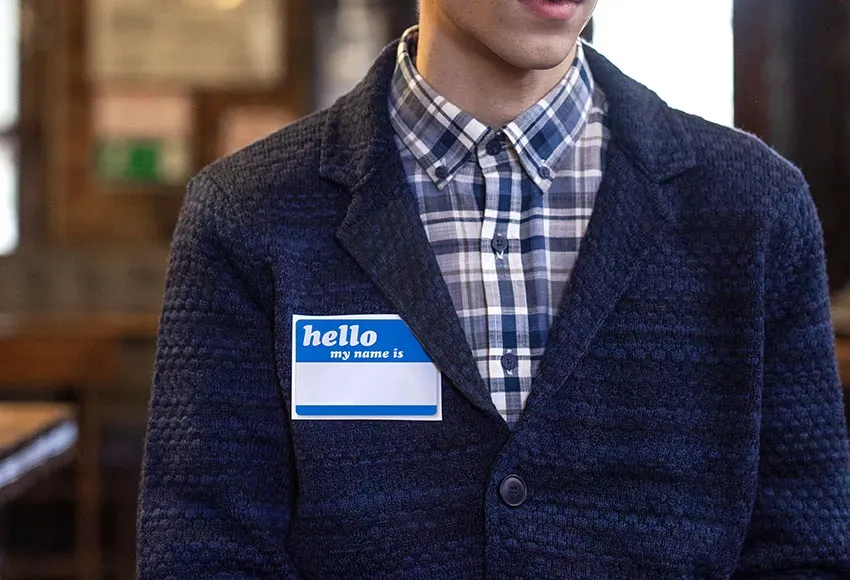Studies show that adopting a chosen name and its use by family, friends, and coworkers can reduce depression. This is why using someone's preferred name is considered an integral part of gender-affirming care. It can be a simple way to improve the mental health of Transgender and gender-nonconforming people.
But taking the initial leap can be anxiety inducing for some. Fear of rejection can be a powerful motivator that keeps some people from sharing how they want to be called.
As many in our community know, hearing the experiences of others can help us to put words and actions to our feelings and identities. Hopefully, by sharing my personal experience, readers can better understand others or possibly even themselves.
I never liked my first name, Bethany. It would be to my parents' chagrin to hear this, considering they picked it out, but I felt it never fit me. Like many people, though, I unthinkingly accepted my given name, deciding to think of it as a simple label instead of something that defines me. For most of my life, going by something other than what in the original Hebrew is said to mean "house of figs," "house of god," or my favorite, "house of affliction," didn't occur to me.
It would be an easy guess if you assumed my family is religious. My father is a pastor and, at the time of my birth, was preaching to a tiny farming town in Oregon. Growing up as a nondenominational pastor's kid in a multidenominational family, I was exposed to various "takes" on Christian belief. I mixed and matched the ideas shared with me for a long time, trying to understand what really makes a "good person." But, as I learned more, I realized that for some Christians, belief alone was the one qualifier for the "good-person test."
All this is to say that my biblical name sometimes leaves a sour taste in my mouth. I am no longer religious. However, I've had the luxury in my adulthood of meeting Christians that exemplify love and acceptance, and I admire them greatly for it.
So that is strike one for my name; strike two would be that I have an aunt named Bethany. She is currently in her forties and has six children. This has caused confusion among family members over the years. In one instance, I contacted a second cousin that I assumed knew me because of how familiarly he would speak to me over Facebook.
When we met in person, we hugged and talked about our parents. He was shocked when I told him about my father's past struggles with alcoholism, and he exclaimed, "No way! I'd never guess James would turn to that."
I paused for a moment and then said, "Wait. Who do you think I am?"
My father's name is Eric, and my grandfather is James. How my distant relative thought I was a mother of six in her forties when I was visibly in my early twenties is beyond me.
Strike three would be my gender identity. Growing up, I realized I didn't quite identify as a woman or a man. I've always felt like something in between, so when I learned about Nonbinary people, I had an "aha" moment.
In kindergarten, the teacher asked us to think of a positive quality about ourselves that starts with the first letter of our names. When I couldn't think of a word I felt aligned with, the teacher suggested "beautiful Bethany." I cringed at that choice, even telling the teacher, "No." I wanted a word that would describe my personality and was gender neutral, but I didn't have a way to express that clearly.
Once I reached adulthood, I wanted to use a different name. I didn't know how to go about it, and I couldn't think of something that felt defining. Funnily enough, I had my true name for almost my whole life and didn't even realize it.
Benny.
My little brother had difficulty pronouncing Bethany when he was a toddler, so he shortened it to Benny. He never stopped calling me that. Hearing him and his friends use that nickname always felt right.
Cut to when I was 19 and talking to my coworker at my first job. I told him what my brother calls me, and my coworker replied, "I like that. That's what I'm calling you now."
A sense of newfound freedom washed over me; I couldn't believe it was that easy to change what others call you. My younger self felt they needed someone's permission before taking the leap, and they had finally gotten it. From then on, I've gone by my chosen name, because at my core, it's who I am.
Names are not just labels for social simplicity. We can pick them out to better match our identities and personalities. They offer us improved self-definition, self-acceptance, and self-expression.
Don't wait for someone's permission, but if you feel you need it, I'll give it to you here.
"I like that. That's what I'm calling you now."


